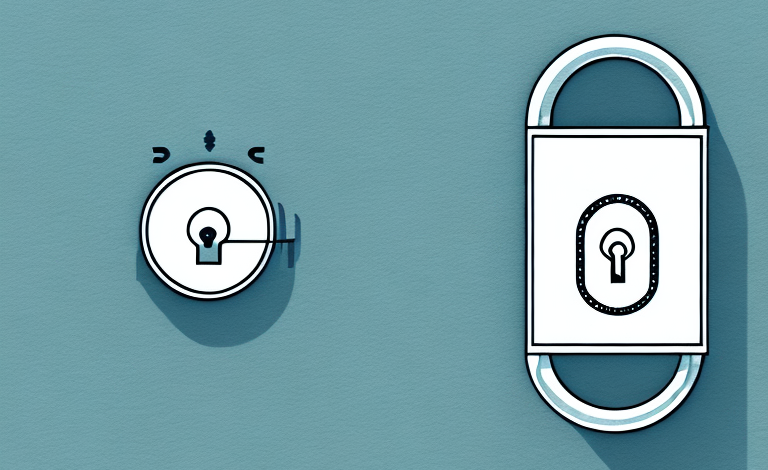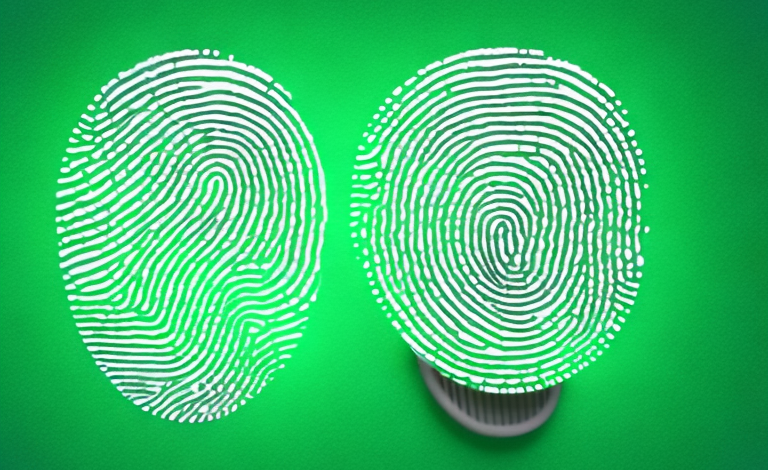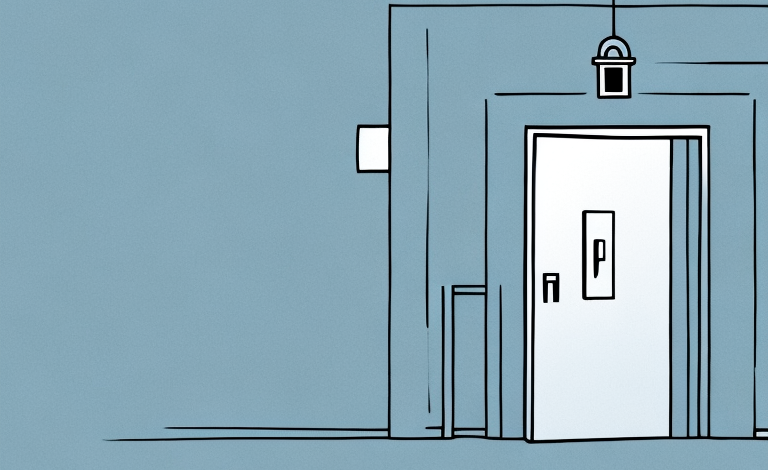Smart locks are the latest technological innovation that promises to provide improved convenience and security in our homes and businesses. In this article, we’ll explore the history, technology, and future of smart locks, including their impact on property management, privacy, and home automation. We’ll also debunk common misconceptions and provide tips on choosing the right smart lock for your needs. So, let’s dive in and discover who benefits from smart locks.
The History of Smart Locks: From Keyless Entry to Biometric Verification
The concept of smart locks dates back to the late 20th century when keyless entry systems were first introduced. These systems eliminated the need for physical keys and replaced them with numerical codes or swipe cards to gain access to a building. However, it wasn’t until the 21st century that smart locks truly came into their own, with the introduction of biometric verification technology that uses fingerprints or facial recognition to grant access.
As technology continued to advance, smart locks became more sophisticated and began to incorporate features such as remote access and control via mobile devices. This allowed users to lock and unlock their doors from anywhere, providing greater convenience and security.
Today, smart locks are becoming increasingly popular as more people seek to simplify their lives and enhance their home security. With the ability to monitor and control access to their homes remotely, homeowners can enjoy greater peace of mind and protect their property from intruders.
How Smart Locks Work: Understanding the Technology Behind It
Smart locks use a combination of different technologies, including WiFi, Bluetooth, NFC, and biometric sensors. These sensors detect the presence of a person and verify their identity based on pre-programmed information. Once the verification is complete, the lock is released, and access is granted. Smart locks can be programmed with different access codes for different people, and many models can be controlled remotely using a smartphone app.
One of the key benefits of smart locks is their ability to provide detailed access logs. These logs can show who has entered and exited a building, and at what times. This information can be useful for security purposes, as well as for tracking employee or visitor activity. Additionally, some smart locks can be integrated with other smart home devices, such as security cameras or thermostats, to create a comprehensive home automation system.
The Pros and Cons of Smart Locks: Is It Really Worth the Investment?
While smart locks offer many advantages, including improved convenience and security, they also have some drawbacks that should be considered. One advantage is that they eliminate the need for physical keys, making it easy to grant or revoke access to different people. Smart locks also offer remote control, which is ideal for those who want to keep an eye on their property when they’re away. However, smart locks are generally more expensive than traditional locks, and they also require a stable internet connection to function correctly. Additionally, some people may have concerns about the security of their biometric data or the possibility of a hacker gaining access to their home or business.
Another potential drawback of smart locks is that they may not be compatible with all types of doors or existing lock systems. It’s important to research and ensure that the smart lock you choose is compatible with your specific door and lock setup. Additionally, some smart locks may require professional installation, which can add to the overall cost of the investment. Despite these potential drawbacks, many people find that the convenience and added security of smart locks are worth the investment.
Smart Locks vs Traditional Locks: Which One Is More Secure?
The security of a lock depends on its design and the quality of its components. However, studies have shown that smart locks can be just as secure as traditional locks when properly installed and maintained. One advantage of smart locks is that they can provide a log of who has accessed the building and at what time. This information can be helpful in investigating any security breaches. Additionally, smart locks can offer added security features, such as tamper alarms and automatic lockouts, that traditional locks do not provide.
On the other hand, traditional locks have been around for centuries and have a proven track record of security. They are also generally less expensive than smart locks and do not require any additional technology or maintenance. However, traditional locks can be vulnerable to lock picking and bumping, which are techniques used by burglars to gain access to a building. It is important to weigh the pros and cons of each type of lock and choose the one that best fits your security needs and budget.
How to Choose the Right Smart Lock for Your Home or Business
Choosing the right smart lock can be challenging, as there are many options on the market with varying features and prices. Some factors to consider when selecting a smart lock include the type of lock, the level of security desired, and the integration with other smart home devices. It’s also important to consider the installation process and whether professional installation is necessary.
Another important factor to consider when choosing a smart lock is the compatibility with your smartphone or other mobile devices. Some smart locks require a specific app to be downloaded, while others may be compatible with multiple apps. It’s important to ensure that the smart lock you choose is compatible with the devices you plan to use to control it.
Additionally, it’s important to consider the power source for your smart lock. Some smart locks require batteries, while others may be hardwired into your home’s electrical system. It’s important to choose a smart lock with a power source that is convenient for you and fits your needs.
Smart Lock Installation: DIY or Hire a Professional?
The installation process for a smart lock can vary depending on the make and model. Some locks can be easily installed by the homeowner, while others require professional installation. Professional installation is generally recommended for more complex systems or for those who are not comfortable with DIY projects.
It is important to note that hiring a professional for smart lock installation can come with added benefits. Professionals can ensure that the lock is installed correctly and securely, reducing the risk of malfunctions or security breaches. Additionally, some smart lock manufacturers may require professional installation in order to maintain the warranty on the product.
The Future of Smart Locks: What to Expect in the Coming Years
The technology behind smart locks is rapidly advancing, and there are many exciting developments on the horizon. One trend is the integration of smart locks with other home automation and security systems to create a seamless user experience. Additionally, many smart locks are becoming more energy-efficient, allowing them to run for longer periods on a single battery charge. Finally, we can expect to see increased adoption of smart lock technology in commercial settings, such as hotels and office buildings.
Another exciting development in smart lock technology is the use of biometric authentication, such as fingerprint or facial recognition, to unlock doors. This provides an added layer of security and convenience for users, as they no longer need to remember a code or carry a key.
Furthermore, smart locks are also being designed to be more durable and weather-resistant, making them suitable for outdoor use. This opens up new possibilities for smart lock applications, such as securing gates or sheds. With these advancements, it’s clear that smart locks will continue to play a significant role in the future of home and commercial security.
Exploring the Benefits of Using Smart Locks for Airbnb Hosts and Guests
One area where smart locks are particularly useful is in short-term vacation rentals, such as those found on Airbnb. Smart locks can provide added security for both hosts and guests, as the lock can be programmed to automatically reset after each stay. Additionally, smart locks can allow hosts to grant temporary access codes to guests, eliminating the need for physical keys and improving convenience.
Another benefit of using smart locks in Airbnb rentals is the ability to monitor access. Hosts can receive notifications when the lock is unlocked, providing them with peace of mind and the ability to keep track of who is entering and leaving the property. This can also be helpful in the event of any disputes or issues that may arise during the stay.
Smart locks can also be integrated with other smart home devices, such as security cameras and thermostats, to create a seamless and convenient experience for guests. For example, guests can use their temporary access code to not only unlock the door, but also adjust the temperature and turn on lights upon arrival.
How Smart Locks Are Changing the Landscape of Property Management
The rise of smart locks has had a significant impact on the property management industry. Smart locks can provide property managers with increased control over who has access to their buildings, and can also provide valuable data on tenant behavior, such as when they enter and exit the building. Additionally, smart locks can be helpful in reducing the time and cost associated with the key management process.
Protecting Your Privacy with Smart Locks: What You Need to Know
While smart locks can provide improved security, they can also raise concerns about privacy. Some people may be hesitant to provide their biometric data, such as their fingerprints or facial recognition, for fear that it could be misused. Additionally, there is a risk of a hacker gaining access to the smart lock and using it to infiltrate the building.
The Role of Smart Locks in Home Automation and Security Systems
Smart locks are an essential component of many home automation and security systems. They can be integrated with other smart devices, such as security cameras and motion sensors, to create a comprehensive security system. Additionally, smart locks can be programmed to trigger other actions, such as turning on lights, when the lock is activated.
Common Misconceptions About Smart Locks Debunked
There are many misconceptions about smart locks that should be addressed. One common myth is that smart locks are less secure than traditional locks. However, as we discussed earlier, smart locks can be just as secure when properly installed and maintained. Another myth is that smart locks can be easily hacked, but the truth is that smart locks are typically more difficult to breach than traditional locks.
How Smart Lock Technology Is Making Life Easier for People with Disabilities
Smart locks can provide significant benefits for people with disabilities, as they eliminate the need for physical keys or the maneuvering of a bulky deadbolt. Additionally, many smart locks can be remotely activated, which can be especially helpful for people with limited mobility.
The Impact of COVID-19 on the Adoption of Smart Home Technology, Including Smart Locks
The COVID-19 pandemic has accelerated the adoption of smart home technology, including smart locks. With more people working remotely and spending more time at home, the demand for home automation and security systems has increased. Additionally, smart locks can offer added safety by reducing the need for physical contact with keypads or traditional keys.
In conclusion, smart locks offer numerous benefits for homeowners and businesses alike, including improved convenience and security. However, the decision to invest in a smart lock should be carefully considered, taking into account factors such as cost, security, and installation. With the rise of home automation and the increasing demand for innovative security solutions, we can expect to see continued growth in the smart lock market in the coming years.



